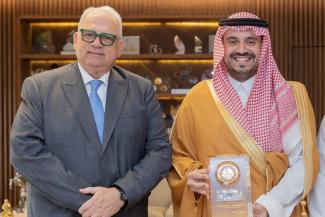A Day in the Life: Olympic champion David Taylor
Wednesday, May 10, 2023 - 13:03 By Eric Olanowski
PENNSYLVANIA, United States (May 10) --- Olympic champion David TAYLOR (USA) took viewers on a captivating journey through a day in his life as a wrestler — from his intense training regime to his life outside the wrestling hall.
At 11:05, Taylor arrived at ‘K2 Roots’, a business he runs with his wife Kendra in State College, PA since 2017. Taylor dropped in K2 Roots for juice, coffee and to help behind the counter.
Taylor arrived at Penn State University for practice which began at 13:30. He focused on working through some positions, going through drills while wrestling with four-time world champion Kyle DAKE (USA).
The Penn State hall had seven current and former world and Olympic medalists practicing simultaneously. This includes Taylor, Dake, Kyle SNYDER (USA), Thomas GILMAN (USA), Jake VARNER (USA), Cael SANDERSON (USA) and Geno PETRIASHVILI (GEO).
After practice, at 17:50, Taylor headed home for his birthday party.
After cutting the birthday cake cut, Dake and Taylor moved downstairs to play a game of pool. He explained his brotherly relationship with Dake and his family as they both chase Olympic glory.
For the record, Dake won the pool game.
The day is not done yet as Taylor leaves for the M2 Training Center in State College at 19:10. Taylor created it to help wrestlers learn and achieve their goals on and off the mat. The curriculum, technique, and training are all based on what Taylor has done in the past and what he is doing today as he pursues his international wrestling goals.
He turned coach for young wrestlers, pushing them for practice and techniques like finishing and defending leg attacks.
Taylor is a world and Olympic champion, but there’s a lot of behind-the-scenes which he shares in the video.


Share your thoughts.
Comments